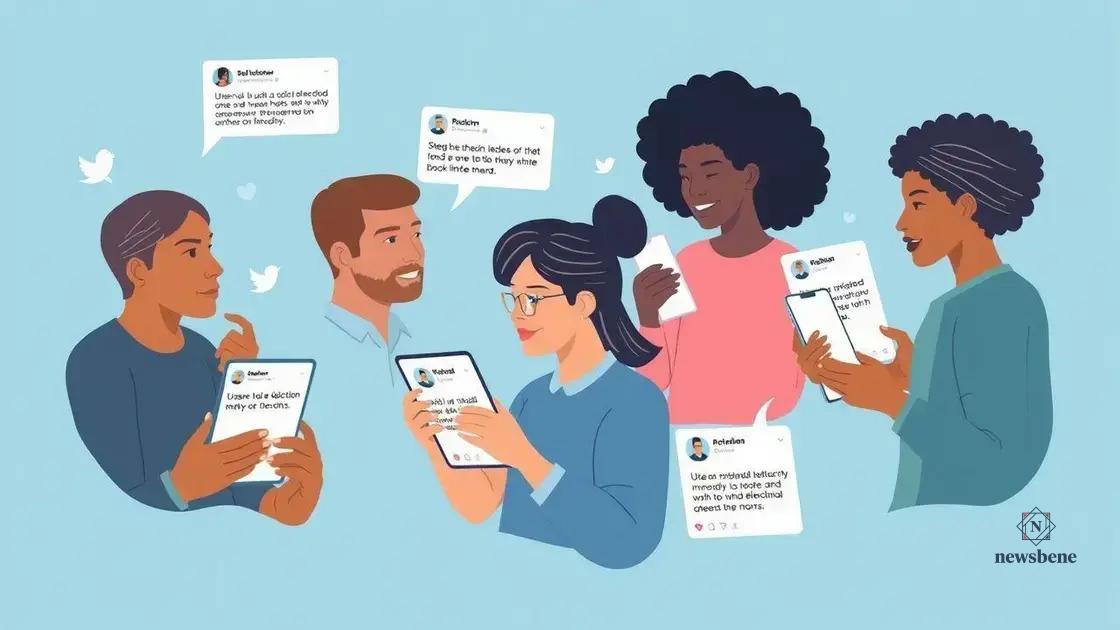Protests calling for election transparency and integrity grow

Protests calling for election transparency and integrity are driven by grassroots activists and global support, utilizing social media to amplify voices and influence legal frameworks for fair electoral processes.
Protests calling for election transparency and integrity are resonating around the world, raising questions about democracy and accountability. Have you wondered why these movements gain momentum?
Understanding the demands behind the protests
The demands behind the protests calling for election transparency and integrity stem from a desire for accountability and fairness in the electoral process. Many citizens believe that a fair election is the cornerstone of democracy. This belief fuels their determination to voice concerns when they feel that their rights are being undermined.
Key Issues Discussed in Protests
Protesters often focus on several key issues, including corruption, lack of access to information, and the need for reforms. They aim to communicate the urgency of these problems through their actions.
- Corruption undermines trust in government.
- Lack of access to truthful information can skew public perception.
- Reforms are needed to ensure fair practices.
Many people feel that without significant change, their voices won’t matter in the larger political landscape. The role of different organizations and movements adds many layers to these protests. Grassroots movements play a crucial part in emphasizing local concerns. They connect people through shared experiences, building solidarity among diverse groups.
Through rallies and social media engagement, they weave a narrative that draws attention to these essential issues. Additionally, they often highlight the importance of voter education. Ensuring citizens understand their rights is vital for fostering participation in the democratic process.
Voices of the Protesters
Protesters often narrate personal stories that reflect broader societal issues. These stories are powerful and capture attention in ways statistics cannot. When individuals share their experiences, they humanize the struggle, making it relatable and urgent. Engaging more people in discussions around these stories drives home the need for change.
In conclusion, understanding the demands behind the protests is critical for recognizing the larger movements at play. Through advocacy for election transparency and integrity, citizens are not just raising voices; they are striving for a brighter future where every vote matters.
Key players in the election transparency movement
The election transparency movement is driven by various key players who play vital roles in advocating for open and fair electoral processes. These individuals and organizations fight to expose fraud, promote reforms, and ensure every vote counts.
Grassroots Activists
At the forefront are grassroots activists. They mobilize communities and raise awareness about the need for integrity in elections. These activists often organize rallies, workshops, and town hall meetings to discuss issues that affect their local elections. Their efforts are crucial for educating voters and influencing public opinion.
- Mobilizing communities around key issues.
- Organizing events to raise awareness.
- Connecting with citizens to share information.
Another significant group consists of non-governmental organizations (NGOs) dedicated to promoting election integrity. These NGOs often conduct research on electoral processes, create reports, and advocate for policy changes. Many work internationally, sharing best practices from different countries to strengthen democratic practices worldwide.
Political Leaders and Legislators
Political leaders also play a crucial role in the transparency movement. They have the ability to influence legislation that impacts election rules and practices. Leaders who support reforms often align with community voices, pushing for laws that enhance voter access and maintain fair practices.
Some activist groups collaborate with these leaders to create comprehensive reform packages that address systemic issues. This collaboration is essential in ensuring that the voices of activists are represented in the legislative process.
Furthermore, independent watchdogs and journalists serve as watchdogs by investigating electoral fraud and raising awareness about irregularities. Through investigative journalism, they expose issues that might otherwise go unnoticed, amplifying the calls for change.
Understanding the roles of these key players helps illustrate how the movement functions. Each contributes their skills and resources, working together to create a more equitable electoral landscape for all.
The role of social media in mobilizing support

Social media has become a powerful tool in the protests calling for election transparency and integrity. It allows individuals and groups to connect, share information, and mobilize support quickly and effectively. Activists utilize platforms like Twitter, Facebook, and Instagram to reach broader audiences and engage them in discussions about electoral issues.
Creating Awareness
One of the primary roles of social media is to create awareness about corruption and unfair practices in elections. Users can easily spread news articles, videos, and personal stories that highlight these problems.
- Instant updates keep the public informed.
- Viral campaigns can draw massive attention to specific issues.
- Community engagement fosters a sense of solidarity among supporters.
Through engaging content, such as infographics and live streams, activists can effectively communicate the urgency of their message. These tactics often resonate with younger voters who are avid users of digital platforms.
Building Online Communities
Social media platforms also help build vibrant online communities. People can connect with others who share similar concerns in a supportive environment. These online spaces encourage discussions and allow individuals to mobilize for events like rallies or community meetings.
Hashtags, trends, and challenges on social media further enhance visibility for important causes. When hashtags related to election integrity go viral, they bring more people into the conversation. This online momentum often translates into real-world participation.
Moreover, social media helps amplify marginalized voices that may feel overlooked. By sharing their stories and experiences, individuals contribute to a richer dialogue about democracy and voting rights.
Ultimately, social media’s role in mobilizing support is significant. It empowers influencers and everyday citizens alike to advocate for change. This interconnectedness strengthens the movement and promotes greater political engagement.
Legal frameworks surrounding election integrity
The legal frameworks surrounding election integrity play a vital role in ensuring that electoral processes are transparent and fair. These laws are designed to prevent fraud and corruption while protecting the rights of voters. Understanding these regulations is crucial for anyone who wants to engage in the electoral process.
Key Legislation
Various pieces of legislation exist at both federal and state levels to promote election transparency. Key laws include the Help America Vote Act (HAVA) and the Voting Rights Act. These laws establish standards and protect against discriminatory practices.
- Help America Vote Act: Enacted in 2002, this law aims to improve the administration of elections.
- Voting Rights Act: Originally passed in 1965, its purpose is to eliminate barriers that prevent people from voting.
- Federal Election Commission regulations: These rules guide the funding and conduct of federal elections.
In addition to federal laws, each state has its own set of rules that govern elections. These regulations can vary widely and often determine specifics like voter ID requirements and mail-in voting procedures.
Challenges to Election Laws
Despite the existing legal frameworks, challenges remain. Voter suppression tactics and gerrymandering significantly impact election integrity. Lawsuits challenging various voting regulations are common, highlighting ongoing debates about what constitutes voter access and protection.
Public sentiment often influences changes in these legal frameworks. Advocacy groups work tirelessly to ensure that laws evolve to meet the needs of changing demographics and technologies. With the rise of online voting and cybersecurity concerns, legislation continues to adapt.
Conversations about election laws also bring attention to the need for reform. Many believe that enhancing accountability measures is essential to rebuilding trust in electoral processes.
Global responses to local protests for transparency
Global responses to local protests for transparency highlight the interconnected nature of today’s political landscape. When citizens rise to demand election integrity, their voices often resonate beyond national borders, prompting reactions from international communities and organizations.
International Solidarity
One of the most noticeable responses is international solidarity. Global movements, such as the Women’s March, often express support for local protests through social media and public statements. This solidarity can amplify the message of local activists and attract attention from policymakers.
- Global NGOs: Organizations such as Amnesty International and Human Rights Watch frequently issue reports highlighting the issues faced in countries experiencing protests.
- Public demonstrations: Protests in one country can inspire similar actions worldwide, creating a ripple effect.
- Statements from world leaders: Leaders may publicly support calls for transparency, increasing pressure on local governments.
These actions can enhance the legitimacy of local movements. When international organizations get involved, they bring added pressure to governments, pushing for changes that may otherwise be ignored.
Media Coverage and Awareness
The role of the media is critical in shaping global responses to local protests. International media outlets often cover significant protests, broadcasting the messages of local activists to a worldwide audience.
Increased media attention can lead to:
- Raising awareness: More people become informed about the specific issues at hand.
- Encouraging foreign interventions: Governments may feel compelled to respond to concerns raised by their citizens.
- Mobilizing resources: Fundraising efforts can help support local movements.
As local activists fight for change, global responses can play a supportive role, influencing public sentiment and providing resources. The cultural exchange of ideas and strategies further strengthens the call for transparency and accountability in governance.
This global dialogue fosters a sense of unity among people fighting for similar goals, creating a powerful force for change.
In conclusion, the movement for election transparency and integrity is vital for ensuring fair democratic processes. As grassroots activists, global organizations, and local communities come together, they create a powerful voice that calls for change. Social media amplifies these voices, while legal frameworks provide the necessary support for accountability. By understanding the key players and the role of global responses, we can see how interconnected our efforts are in striving for democracy. Together, we can foster a more transparent and trusted electoral system that reflects the will of the people.






